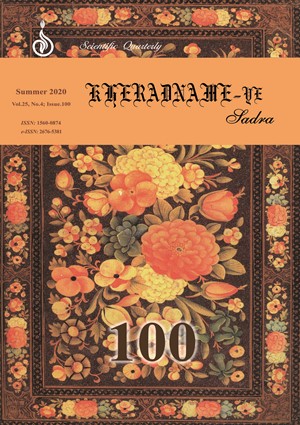A Study of Mudarres Zunūzī’s View of the Theory of Interrupting the Divine Punishment based on the Ideas of Ibn ‘Arabī and Mullā Ṣadrā
Subject Areas :Hamidreza Khademi 1 , Reza Hesari 2
1 -
2 -
Keywords: Hereafter eternity of punishment stopper of punishment human will Ibn ‘Arabī Mullā Ṣadrā Mudarres Zunūzī ,
Abstract :
The eternity of divine punishment is among the important eschatological problems and discussions in philosophy and gnosis. Ibn ‘Arabī and Mullā Ṣadrā’s scrutiny and analysis of this problem attracted the attention of several Muslim thinkers to this subject in later times. Among them, Āqā ‘Alī Mudarres Zunūzī was one of the advocates of the theory of sinners’ eternal punishment in hell. In his glosses on al-Asfār, he adduced three arguments for this theory including the direct reference of some Qur’anīc verses to the eternity of punishment, the absence of any defense against divine punishment, and the concomitance of Man’s free will with eternal punishment. Zunūzī does not agree with the ḥadīth that Mullā Ṣadrā cites in order to demonstrate the interruption of punishment. However, in this paper the authors demonstrate that his criticism of Mullā Ṣadrā’s view is unfounded. Therefore, it can be said that the arguments adduced by some philosophers and gnostics in defense of the interruption of punishment are complete and can rationally justify this problem.
